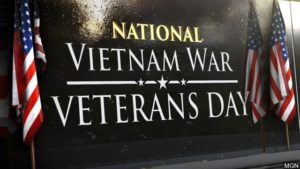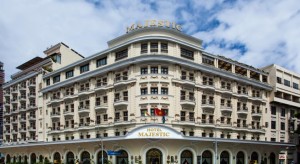It was 50 years ago this week when a war we thought might never end actually concluded.
The end of the shooting in Vietnam occurred on Aptil 30, 1975 when Bui Tin reportedly accepted the surrender of forces commanded by Durong Van Minh, also known as “Big Minh.” I guess the gentleman was much larger than your average Vietnamese man.
Why bring this up? Well, in November 1989, I had the high honor of meeting Bui Tin in a dingy Hanoi conference room. I was touring Vietnam with fellow journalists and we arranged for a meeting with Bui Tin and heard his first-hand account of what happened the day North Vietnamese tanks rolled into Saigon, captured the enemy government, renamed the city after “Uncle Ho” Chi Minh and began to rebuild the nation torn asunder by decades of war against the Japanese, the French and, finally, the Americans.
Bui Tin eventually fled Vietnam and lived in France for the rest of his life. He died there on Aug. 11, 2018.
He was an unpretentious man, as I recall. He spoke matter-of-factly — through an interpreter — of when he accepted Big Minh’s surrender. His version of events has been disputed by the Vietnamese government in the decades since the end of the war.
For me? I’ll go along with Bui Tin’s story. I recall at the time that he sounded credible and I don’t recall any of my colleagues questioning the veracity of the story he told us.
Many of us among the journalists who made that journey are Vietnam War veterans and for those of us who returned to Vietnam after serving there during war, the whole return was an event that changed many of our lives.
It damn sure changed mine!
The U.S. war effort had ended in January 1973. We brought our remaning troops home, left the embassy in Saigon under fire and began to rebuild our own nation’s life once American blood stopped flowing.
Vietnamese continued to suffer from what we left behind. It’s been quiet there since 1975 and Vietnam is now an ally … of sorts. Yes, even the bitterest of enemies can make it right between them.

